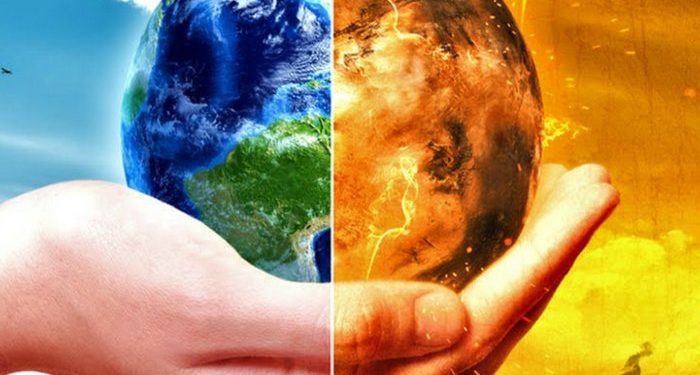
The recent natural catastrophic events in the United States and Puerto Rico -which may be related to or worsened by climate change- call attention to the effects this phenomenon has on human health. According to the World Health Organization (WHO,) the warming and precipitation trends associated with climate change claim over 150,000 lives annually. It is possible that the costs of this phenomenon will increase with time –both in lives as well as in economics- underscoring the need for more effective approaches to this problem.
The rate of global warming has accelerated over the last few decades and, as a result, sea levels are rising, glaciers are melting and precipitation patterns are changing. As we have recently seen in the Caribbean and North America, extreme weather events are becoming more frequent and more intense, and so have been the consequences on the lives of every population in nature.
People’s health is the result of factors such as genetic make-up, nutrition, level of activity, social milieu, economic status, and education among other factors. In addition to those, there are other determinants of health such as clean air, safe drinking water, sufficient food, secure shelter and access to health care, all of which are affected by climate change.
Although climate change may bring some localized benefits, such as fewer deaths in winter and increased food production in some regions as a result of temperature increase, its effects on health are mostly negative. They include infectious and allergic diseases as well as mental health problems caused by moving people out of their homes and, in most cases, placing them into much more precarious living conditions.
At a global level, the number of weather-related natural disasters has more than tripled since the 1960s, resulting in an enormous amount of deaths (some estimated indicate over 100,000 deaths per year), which occur mostly in developing countries. Rising sea levels and extreme weather conditions not only destroy homes but also affect medical facilities and other health and social services. Floods contaminate freshwater supplies, increase the risk of water-borne diseases, and create breeding ground for mosquitoes, with their considerable disease-carrying capacity.
Malaria, which is transmitted by Anopheles mosquitoes, and kills almost one million people every year –mainly African children under five years old-, is strongly influenced by climate. And so is the Aedes mosquito vector of dengue, a most debilitating disease. An estimated 390 million dengue infections occur worldwide each year, with about 96 million resulting in illness. It is estimated that the number of people affected by dengue will increase substantially in the next few decades.
Rising temperatures and altered precipitation patterns will likely decrease the production of staple foods, particularly in the poorest African countries. This will result in increases in malnutrition and under nutrition –particularly among children-, which currently cause 3.5 million deaths every year. A United Nations (UN) panel on climate change reported that, over all, global warming could reduce agricultural production by as much as two percent each decade for the rest of the century, while population will grow to 9.6 billion in 2050, from 7.2 billion today.
Higher temperatures increase ground-level ozone concentrations and direct lung injuries and more serious respiratory diseases such as asthma and chronic obstructive pulmonary disease. Climate change will also lengthen the transmission seasons of important vector-borne diseases and modify their geographic range, according to WHO. Disease migration responds to complex dynamics, of which temperature is one more factor.
Although all kinds of populations are affected by climate change some groups such as children, older people and the poor are more vulnerable. Countries with weak health infrastructure and beset by economic problems will be the least able to respond with adequate assistance, a situation starkly seen now in Puerto Rico.
Even if many actions can be carried out at the individual level, it is necessary to strengthen the awareness of governments about the seriousness of the situation and the urgency to create adequate mechanisms to respond to this challenge. Otherwise, we will ignore the damage at our own peril.
Dr. César Chelala is an international public health consultant and a winner of several journalism awards.
Information Clearing House
The 21st Century
